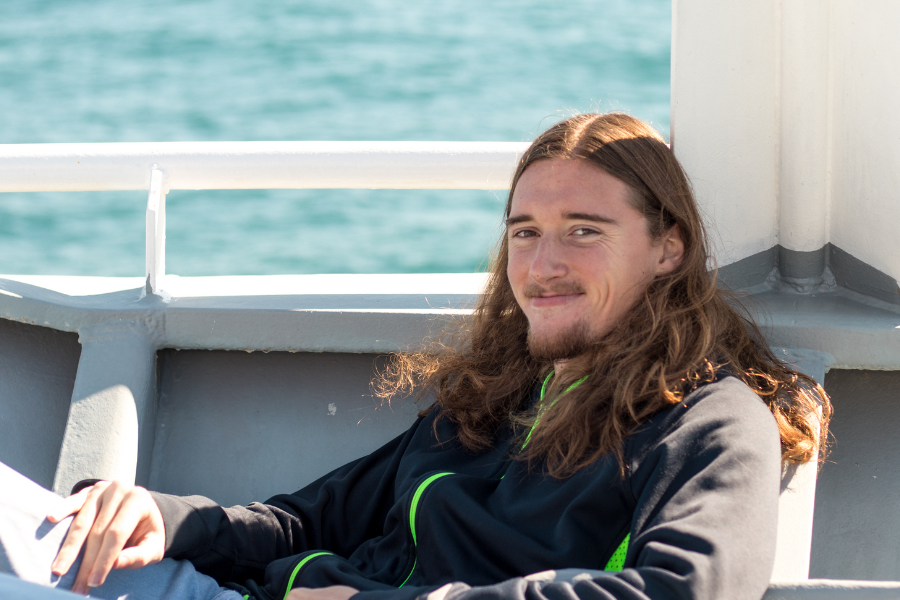Christian Fender

Understanding the world requires greater education
College: Arts and Sciences
Degree Program: Biological Oceanography
Degree: Doctorate
Why FSU?
FSU is the home of the Stukel Lab, which explores the connections between plankton ecology and their impact on ocean biogeochemistry. Our work draws on all levels of oceanography including understanding the biological interactions of different plankton species, the physics behind how they are transported, and the dynamic export of different elements often culminating in complex mathematical models that predict all these factors at both global and regional scales. This work allows me to draw on my knowledge of various scientific fields while forcing me continuously expand that knowledge in new directions.
Motivation to pursue a graduate degree
I've always enjoyed the sciences and love connecting the dots between different fields to provide holistic insights into the way the world works in the big picture. I particularly love asking these questions of the ocean, one of the last great unexplored realms of our planet. We understand so little of oceanography that there are always new questions to be asked and research to be done on how the seas function, and increasingly how humans impact that function, but to fully grasp the answers requires a graduate degree.
Importance and/or impact of research and work
My research mainly falls into two branches: the first is exploring new techniques in optical imaging and classification to capture the microscopic particles in the ocean that drive the cycling of carbon, the element that forms the building blocks of all organic life. Secondly, I'm particularly interested in how understudied gelatinous zooplankton like salps, doliolids, and pyrosomes affect this carbon cycle as well as the ecology of the environment around them. Many scientists believe that ocean warming will increasingly favor these gelatinous organisms, so understanding how they affect the ocean now will help us predict what impacts they may have in the future.
Career aspirations
As much as I enjoy conducting my own research, my real passion lies in helping others bridge the gaps between different scientific fields. After I graduate, I intend to become a university professor where I can continue to broaden my research program while exposing others to it and teaching at the graduate level.
Advice for anyone considering graduate school
Don't be afraid to reach out to and learn from other scientists outside of your immediate circle. Older generations are prone to becoming fixated on doing things the way they learned to do them, so the graduate stage where you are still learning is a great opportunity for innovation. All scientists love to discuss their research, so if you have a question about how someone's findings might impact your work...ask them!
Accomplishments during graduate career
In 2018 I had the privilege of participating in the first (and to date only) research cruise designed specifically to study the impacts of salps on ocean ecology and biogeochemistry. Four years later, we are still publishing one of a kind papers that dramatically change how we view these organisms. My contribution to this research has been designing, on my own, one of the only methodologies for imaging the prey these salps consume using scanning electron microscopy. I haven't even published the results yet and already have fellow scientists contacting me to ask questions about my techniques!
